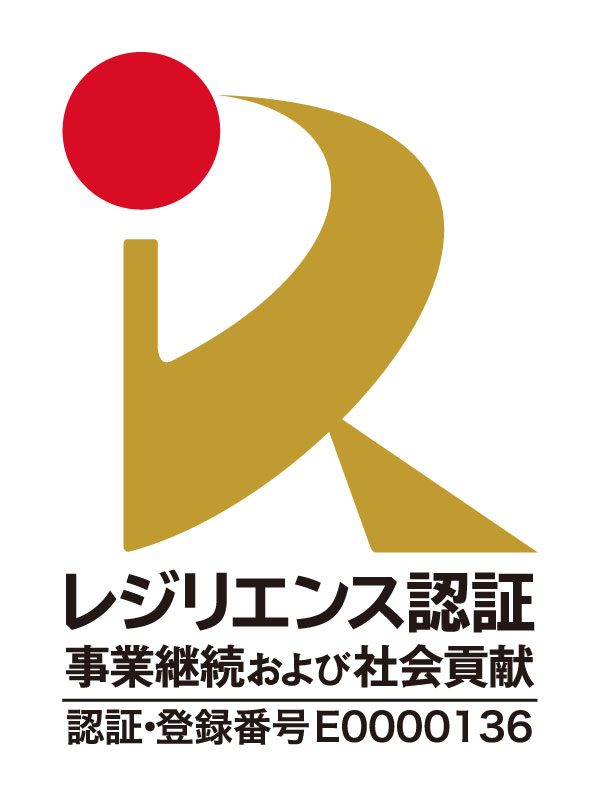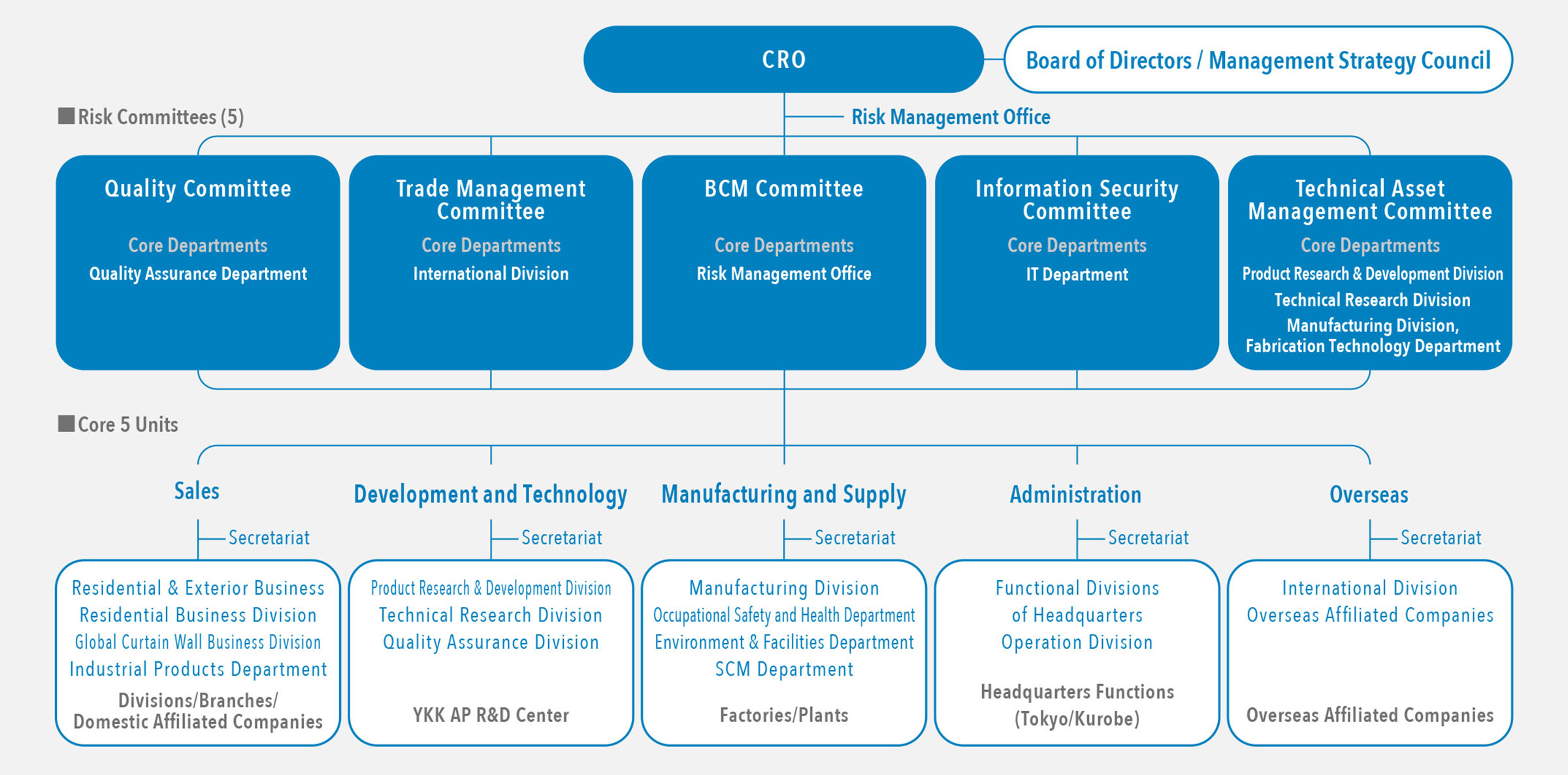- HOME
- Sustainability
- Governance
- Risk Management
Risk Management
GovernanceOur Basic Principle
YKK AP has designated several material issues (high priority topics) that are key to driving its sustainable growth; one of these issues is "Resilient Business Foundation". To strengthen our system of risk management and establish a governance structure for times of emergency, we are developing and implementing regulations through BCM committees under the leadership of CRO. We enhance our resilience by enhancing collaboration between the committee and each department, preparing a business continuity plan (BCP) during peacetime, and ensuring smooth operation during emergencies.
Strengthening of the Risk Management System
YKK AP has formed five risk committees to enhance the risk management system and establish a governance system for emergencies. We have also created regulations for each committee and are operating them accordingly. We will enhance our resilience by strengthening cooperation between individual divisions and the Risk Management Committee, preparing a business continuity plan (BCP) for ordinary circumstances, and ensuring smooth operations in the event of an emergency.
Risk Map Development and Selection of Key Risks
We assess the risks surrounding the business and create a risk map according to changes in the environment, the urgency of response to the risks, and the expected scale of damage. After creation, risk maps are reviewed from the perspectives of (1) reviewing risk items, including key risks, (2) clarifying risk levels, and (3) clearly indicating the efforts of related departments for key risks, and risks that have a significant impact on management are designated as key risk items, and policies and initiatives for damage estimates, proactive countermeasures, education and training, etc. are developed as appropriate to the nature of the risk.
Response to main key risks
Natural disasters(earthquakes, tsunamis, typhoons, torrential rains)
External environment and potential risks
There is a risk that business activities may be disrupted due to damage from major earthquakes, windstorms, and floods. In addition to physical damage such as casualties among employees, diminished production capacity due to damage to equipment, etc., and restoration costs for such, business activities may suffer long-term stagnation due to the suspension of essential utilities, logistics gridlock, and other factors.
Initiatives
- In the event of a disaster, a task force headed by the president will be established. BCM Committee members will serve as the heads of BCP task forces for their respective functions, and will oversee, direct, and generally manage the emergency response
- A BCM Committee has been established to deliberate and decide on policies and measures for business continuity, and is in charge of formulating, maintaining, and updating the BCP, as well as conducting education and training
Cyber incidents
External environment and potential risks
Trade secrets may be lost or leaked due to computer virus infections or unauthorized access, or information systems may be disrupted due to cyber-attacks or telecommunication service outages, resulting in business shutdowns.
With the expansion of DX and remote work, the possibility of forced shutdowns or loss of company secrets or other data due to intrusions into information systems is increasing.
Initiatives
- Establishing and operating IT-BCP (action plan, system, escalation process, etc. based on IT-BCM guidelines)
- Establishing an incident response system (IT security system, IoT products)
- Strengthening response by setting up subcommittees in the Information Security Committee for specific roles
Supply chain disruption
External environment and potential risks
The supply chain may be affected by political and economic changes in countries around the world, such as sharp increases in energy and raw material prices arising from geopolitical risks, higher logistics costs, import/export restrictions, and significant fluctuations in foreign exchange rates.
Initiatives
- Implementing supply chain BCP, including consideration of alternative arrangements and manufacturing policies for global supply
- Measures for goods purchasing ((1) Hedging schemes and multiple purchasing (2) Regular exchange of information with suppliers, inventory policy (3) Design and application of routes to deal with interruptions to distribution networks)
- Addressing economic downturns and increased competition
BCP Initiatives
In preparation for disaster and risk occurring, we have formulated BCPs at all locations in Japan and overseas. In addition, for the purpose of prompt implementation of the BCPs, we reviewed and updated the Business Continuity Management (BCM) Regulations. We plan to further instill this along functional axes and on a regional site basis.
We carry out regular disaster drills every year to increase the effectiveness of the BCPs. In addition, in response to changes in work styles, such as telecommuting and commuting directly between home and work sites, the CRO led the distribution of a "Natural Disaster Risks and Countermeasures" video via a web-based internal newsletter.
Resilience Certification
To recognize our series of initiatives on risk management, YKK AP has been certified as a business operator that meets the "Resilience Certification" requirements for Business Continuity and Social Contributions from the Association For Resilience Japan.
About the Resilience Certification
This program certifies corporations and organizations that endorse the Cabinet Secretariat's National Resilience concept, and are actively engaged in business continuity initiatives, as organizations that are helping build national resilience. The Association For Resilience Japan reviews and certifies organizations according to requirements set by the Cabinet Secretariat's National Resilience Promotion Office. Its goal is to build a more resilient society as a whole by promoting and expanding proactive initiatives by corporations and organizations for business continuity (self-reliance) and social contribution (public assistance).







